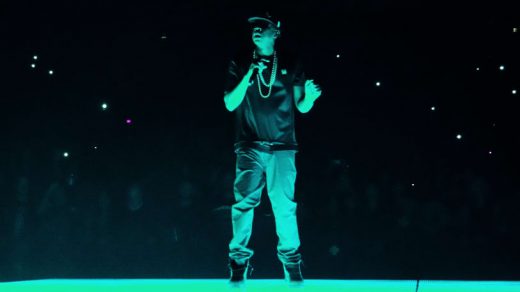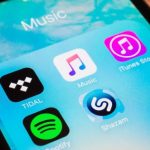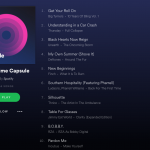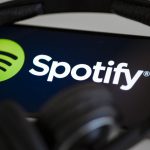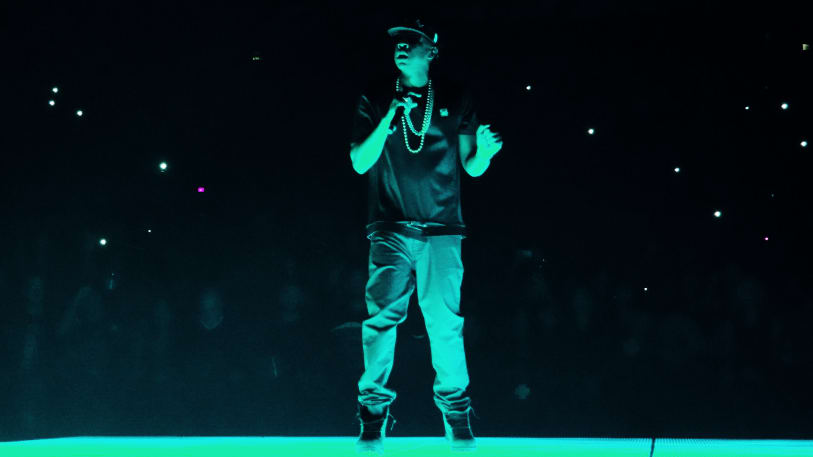Jay-Z’s Shortsighted Spotify Purge Won’t Help Tidal Or His Fans
I am, admittedly, worth far less than $ 610 million. So far be it from me to critique the business acumen of Shawn Carter—the rapper and entrepreneur better known as Jay Z—who Forbes says is worth about that much. But something about his latest move doesn’t seem destined for success.
Over the weekend, most of Jay Z’s albums disappeared from Spotify and Apple Music, leaving his own Tidal streaming service as one of the few places where fans could stream his most popular releases, like Reasonable Doubt and The Blueprint. (For reasons that are unclear to me, most of Jay Z’s catalog returned to Apple Music earlier today, but it’s still missing from Spotify.) It’s obvious what Jay is probably going for here: By pulling his music from the biggest subscription music streaming service on the internet, Spotify, he hopes to give fans one more reason to choose his struggling service, Tidal. But will it work?
The move comes at a moment of mixed fortunes for Tidal. The music service recently struck a deal with Sprint that boosted its value to $ 600 million and promised Tidal a wider audience through an as-yet-undefined music offering for Sprint mobile phone subscribers. It was a fortuitously timed partnership for Tidal, which has struggled to rise up beyond its self-reported 3 million subscribers, while Spotify breaks 50 million and Apple is catching up alarmingly fast. Earlier this year, a Norwegian newspaper accused Tidal of inflating its subscriber numbers, which may have been as low as 850,000 at the time of the 3 million subscriber claim.
So, shoring up exclusive access to music by superstar artists like Jay Z should help reverse the trend, right? Not if you’ve been paying attention. In fact, hardly anyone knows this reality more intimately than Tidal. The service, co-owned by Jay Z and 15 other high-profile artists, has made music exclusivity a central part of its strategy. The company’s name is practically synonymous with exclusive album releases from big name artists like Kanye West, Rihanna, and Beyonce. While last year’s string of Tidal exclusives helped inject the company’s name into the cultural dialogue (complete with an SNL skit about the service), it did little to eat away at Spotify and Apple’s dominance. Indeed, the limited streaming availability of Kayne West’s Life of Pablo seemed to drive many people back into the arms of illegal downloading even as it inspired others to go sign up for Tidal.
After half a year of high-profile exclusives, the recording industry seemed to change its tune about going along with the strategy last August after Frank Ocean snuck around his record contract with Universal’s Def Jam by fulfilling it with the short visual album Endless right before independently dropping another album, Blond, on Apple Music. This contractual sleight of hand—combined with the limited global reach of individual streaming platforms—reportedly helped push the already exclusive-weary Universal Music Group CEO Lucian Grainge toward his new policy: No more streaming exclusives with Universal artists. UMG’s move seems to mirror an industry sentiment, since there have been so few of these types of exclusives since last summer.
New releases are a bit different from back catalogs. New albums can lead to a huge spike in listening by eager fans, while back catalogs help maintain a more consistent, day-to-day flow of streaming activity (and often, millions in revenue for well-known artists). Back catalogs are also, in theory, a selling point for music services. If you’re a huge Garth Brooks fan who owns an Amazon Echo, you’re likely to be drawn toward Amazon Music Unlimited with its exclusive access to Brooks’s catalog and cheaper monthly price for Echo owners. But by and large, this type of one-off catalog exclusivity doesn’t appear to do much to move the needle on subscriber numbers. Again, just ask Tidal. Until recently, Tidal offered exclusive streaming access to Prince’s entire catalog, but there’s no evidence yet that this move translated into millions and millions more Tidal subscribers, despite the shocking and unexpected death of the pop legend last year (death pretty much always results in a huge spike in sales, and more recently streams, for famous musicians). While Tidal certainly saw a jump in app downloads last April when Prince died and Beyonce’s Lemonade was released, the company hasn’t yet come out boasting much in the way of exciting subscriber growth in the last year.
So, despite new releases from megastars like Kanye and back catalog exclusives from legendary acts like Prince and Neil Young, Tidal still hasn’t managed to come anywhere close to the subscribers of even the second-place streamer Apple Music (which notably launched in 2015, three months after Tidal). So what makes Jay Z think his albums will make a difference, especially this late in the game?
It’s conceivable, though a bit far-fetched, to envision a Tidal-led coup against Spotify, in which some of Jay Z’s artist co-owners like Beyonce or Kanye West agree to start pulling their albums from other streaming services. With enough notable gaps in music libraries between services, this could become a more meaningful competitive difference between services. But between the contractual limitations artists have with their labels–not all musicians have as much control over their work, or where it is or isn’t available, as Jay Z does–and the fact that Tidal’s audience is so small, this scenario seems unlikely. More than anything, it would be ill-advised.
It’s one thing for a popular artist to to “window”–industry jargon for delaying or restricting–their releases from streaming platforms (as Adele did) or hold out on streaming altogether (as The Beatles did until late 2015). It’s quite another for artists to yank their catalogs from streaming services after they’ve already been available (hello, Tay Tay). As streaming grows, this type of maneuver naturally becomes more hostile to music fans.
Take Jay Z. As of right now, the rapper boasts 13 million monthly listeners on Spotify. That’s 13 million people who listen to Jay Z’s music regularly on Spotify (as opposed to more casual, occasional listeners) who suddenly have gaps in their music collections and grayed-out track titles on their playlists. For those listeners, this is an annoyance. Sure, some diehard Jay Z fans who were already considering a Tidal subscription might sign up for it, but it’s hard to envision many people doing that. Instead, some will supplement their Spotify listening with other artists in the service’s vast, seemingly unlimited sea of music. Others may get their Jay Z fix on YouTube. Some may pirate their favorite albums. But it’s safe to assume that a great many of them will never pay for two music services at once, since the content offering and features of most of these services are primarily the same.
This is exactly why new album exclusives are so problematic and unpopular: They may have a theoretical benefit for one streaming platform in its war against its rivals, but the strategy essentially uses music fans as pawns in that battle and gives them new, unnecessary hoops to jump through. In essence, it’s a bunch of very rich people duking it out for dominance and screwing up your party playlists in the process.
Jay Z’s disappearing act comes just days after Spotify announced a new deal with UMG that will allow the label to hold new releases back from Spotify’s free tier temporarily. It’s a compromise in which Spotify reverses its long-held protection of the free, ad-supported tier in order to placate the music industry, which has long been frustrated by the lower revenue generated by free streaming–the ad-supported tier earns more money for the labels. Giving artists and labels the option to “window” new albums (and who knows, perhaps back catalogs in future deals with the labels as well) from the free tier is a reasonable compromise that lets labels earn more from new releases and lessens the need for more listener-hostile exclusives and other industry turf war tactics. At least, let’s hope that’s the case.
(79)

